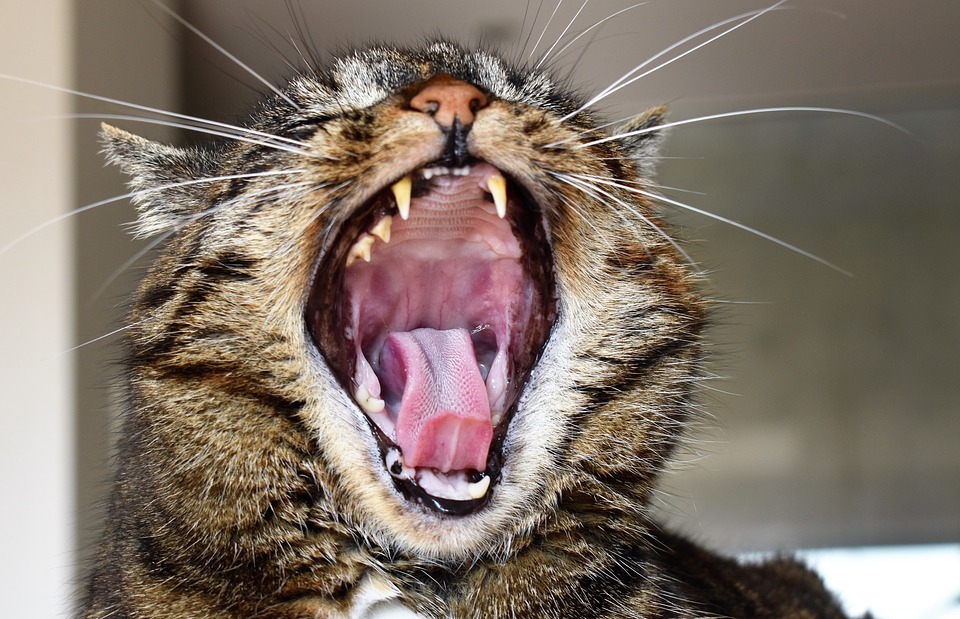The festive season often brings a delicious aroma of roasted turkey to our homes, making it tempting to share a piece with our feline companions. But can cats safely enjoy this holiday staple? This comprehensive article delves into the world of turkey and cats, exploring its nutritional benefits, potential risks, safe consumption guidelines, and answers to common queries.
Part 1: The Nutritional Value of Turkey for Cats

1.1. A Protein Powerhouse:
Turkey is a lean source of high-quality protein, a vital nutrient for cats. This protein is essential for various bodily functions, including:
- Muscle Building and Maintenance: Protein is the building block of muscles, ensuring your cat maintains strong, agile muscles for play and everyday activities.
- Healthy Skin and Coat: Protein contributes to the production of keratin, a key component of skin and fur, resulting in a shiny and healthy coat.
- Energy Production: While fat is the primary energy source for cats, protein plays a vital role in energy metabolism, ensuring your feline friend has the energy to thrive.
1.2. Essential Vitamins and Minerals:
Beyond protein, turkey provides a treasure trove of vitamins and minerals crucial for feline well-being:
- Vitamin B12: This vital vitamin supports red blood cell production, essential for oxygen transport throughout the body, and contributes to healthy nerve function.
- Niacin (B3): Niacin plays a crucial role in energy metabolism and aids in healthy digestion, ensuring your cat's digestive system functions smoothly.
- Selenium: An essential antioxidant, selenium protects cells from damage caused by free radicals, helping to maintain overall health and vitality.
- Zinc: Zinc is vital for a healthy immune system, contributing to your cat's ability to fight off infections and recover from injuries quickly.
- Iron: Iron is essential for oxygen transport and energy production, ensuring your cat has the stamina to play and explore.
Part 2: Potential Risks of Feeding Turkey to Cats

While turkey offers nutritional benefits, it's important to be aware of potential risks associated with feeding it to cats.
2.1. Bone Fragments:
Turkey bones, especially when cooked, become brittle and can easily splinter. These fragments pose a serious choking hazard and can cause internal injuries if ingested.
2.2. High Fat Content:
Turkey skin and dark meat contain a higher fat content compared to white meat. Excessive fat intake can lead to:
- Weight Gain: Excess fat contributes to weight gain, putting your cat at risk for obesity-related health problems.
- Pancreatitis: This painful inflammation of the pancreas can be triggered by a high-fat diet.
- Other Health Issues: Excessive fat intake can contribute to liver problems, heart disease, and other health issues in cats.
2.3. Seasoning and Additives:
Turkey dishes often contain spices, herbs, salt, and other seasonings that can be toxic to cats. Some of the most common culprits include:
- Onions, Garlic, and Chives: These members of the Allium family are highly toxic to cats, even in small quantities, and can cause red blood cell damage.
- Salt: Excessive salt intake can lead to dehydration and kidney problems in cats.
- Other Spices: Many spices, like pepper, paprika, and chili powder, can cause digestive upset and irritation in cats.
2.4. Allergic Reactions:
While less common, some cats may be allergic to turkey. Symptoms of a turkey allergy can include:
- Vomiting: This is often the first sign of an allergic reaction and can be accompanied by diarrhoea.
- Diarrhoea: Loose stools or diarrhoea can indicate an allergic reaction to turkey.
- Skin Reactions: Cats with turkey allergies may experience itching, redness, and hair loss around the face, ears, or paws.
Part 3: Safe Ways to Give Turkey to Cats
If you choose to give your cat turkey, it's crucial to do so safely and responsibly.
3.1. Plain Cooked Turkey:
The safest option is to offer plain, cooked turkey breast, free from skin, bones, and seasonings.
- White Meat: White meat is leaner and contains less fat than dark meat, making it a better choice for cats.
- Thorough Cooking: Ensure the turkey is cooked thoroughly to eliminate any harmful bacteria.
- No Bones: Remove all bones before offering the turkey to your cat to avoid choking hazards and internal injuries.
3.2. Turkey Treats:
Commercial cat treats made with turkey are a convenient and safe alternative to table scraps.
- Read Labels Carefully: Choose treats with high-quality ingredients, minimal additives, and a reasonable fat content.
- Moderation: Treats should be given in moderation as part of a balanced diet, not as a substitute for regular meals.
- Variety: Offer a variety of treats to prevent boredom and keep your cat engaged.
3.3. Moderation is Key:
Regardless of the form, turkey should be given in moderation as a treat, not a staple part of a cat's diet. A small piece of plain cooked turkey breast a few times a week is sufficient.
Part 4: Turkey Alternatives for Cats
There are several delicious and nutritious alternatives to turkey that can be safely included in your cat's diet.
4.1. Chicken:
Chicken is another excellent source of high-quality protein, readily available, and a popular choice for feline meals and treats.
4.2. Fish:
Fish, particularly salmon, is an excellent source of omega-3 fatty acids, known for promoting healthy skin, coat, and brain function in cats.
4.3. Eggs:
Eggs are a complete protein source and can be offered cooked. However, avoid raw eggs as they can contain harmful bacteria that could make your cat sick.
Part 5: Signs of Turkey Toxicity
If your cat has ingested turkey and is experiencing any of the following symptoms, seek immediate veterinary attention.
5.1. Digestive Upset:
- Vomiting: Vomiting is a common sign of turkey toxicity and can be accompanied by diarrhoea.
- Diarrhoea: Loose stools or diarrhoea can indicate a problem with the digestive system.
- Loss of Appetite: A sudden loss of appetite can be a sign of illness or digestive distress.
5.2. Respiratory Distress:
- Difficulty Breathing: If your cat is having trouble breathing, it could be a sign of a serious condition.
- Coughing: A persistent cough can indicate respiratory irritation or infection.
- Wheezing: A whistling sound during breathing can be a sign of airway obstruction or inflammation.
5.3. Neurological Symptoms:
- Weakness: Loss of muscle strength or coordination can indicate a neurological problem.
- Tremors: Involuntary shaking or trembling can be a sign of neurological distress.
- Seizures: Seizures are a serious medical condition that can be caused by various factors, including poisoning.
Part 6: When to Seek Veterinary Attention
If you suspect your cat has ingested turkey and is experiencing any of the above symptoms, even mild ones, it's best to seek immediate veterinary attention. Your veterinarian will be able to assess the situation, provide appropriate treatment, and offer valuable advice on preventing future incidents.
Part 7: Conclusion
While turkey can be a healthy treat for cats in moderation, caution is essential. Avoid feeding bones, skin, and seasoned turkey. Choose plain cooked turkey breast or commercial cat treats as safe alternatives. Remember, a balanced diet tailored to your cat's needs is crucial for optimal health.
Part 8: FAQs
8.1. Can cats eat turkey skin?
No, turkey skin is high in fat and can cause digestive upset and weight gain in cats. It's best to remove the skin before giving any turkey to your cat.
8.2. Can cats eat turkey bones?
No, cooked turkey bones are particularly dangerous as they splinter easily and can cause internal injuries. It's essential to ensure all bones are removed before feeding turkey to your cat.
8.3. Can cats eat turkey gravy?
Turkey gravy is often loaded with fat, salt, and other seasonings that are harmful to cats. It's best to avoid feeding your cat any gravy.
8.4. What are the best turkey treats for cats?
Commercial cat treats made with turkey are a safe and convenient option. Look for treats with minimal added ingredients, high-quality protein, and a reasonable fat content.
8.5. How much turkey can I give my cat?
Turkey should be given as a treat in moderation. A small piece of plain cooked turkey breast a few times a week is sufficient.
8.6. Is raw turkey safe for cats?
Raw turkey can carry harmful bacteria like Salmonella and E. coli, which can make your cat very sick. It's best to avoid feeding raw turkey to cats.
8.7. Can I feed turkey to my pregnant or nursing cat?
It's best to consult your veterinarian before offering turkey to a pregnant or nursing cat. They can advise you on the appropriate diet for your cat during these delicate periods.
8.8. My cat has a sensitive stomach. Can they eat turkey?
If your cat has a sensitive stomach, start with a small amount of plain cooked turkey and monitor their reaction. If they experience any digestive upset, it's best to avoid turkey and consult your veterinarian.
8.9. Can I feed turkey to my kitten?
Kittens are still developing and have sensitive digestive systems. It's best to avoid feeding turkey to kittens until they are at least a year old.
Remember, consulting with your veterinarian is always the best way to ensure your cat's safety and well-being. They can provide tailored advice based on your cat's individual needs and health condition.
Everyone is watching
-

Are Cat Ribs Flexible? Understanding Their Anatomy
CATS & KITTENSThis article delves into the fascinating world of feline anatomy, exploring the flexibility of cat ribs and ho...
-

Can Cats Eat Bananas? (Everything You Need to Know)
CATS & KITTENSThis article dives into the intriguing question of whether cats can safely enjoy the sweet, yellow fruit, bana...
-

Cat Lifespan: How Long Do Cats Live?
CATS & KITTENSThis comprehensive guide explores the factors influencing the lifespan of our feline companions, providing ins...
-

Can Cats Get COVID-19? What You Need to Know
CATS & KITTENSThis article will delve into the fascinating world of feline COVID-19 susceptibility. We'll explore whether ca...
-

Can Cats Eat Eggs? A Complete Guide to Egg Safety for Your Feline Friend
CATS & KITTENSWhen it comes to treating our furry companions, we all want to ensure we're doing what's best for them. Eggs...
